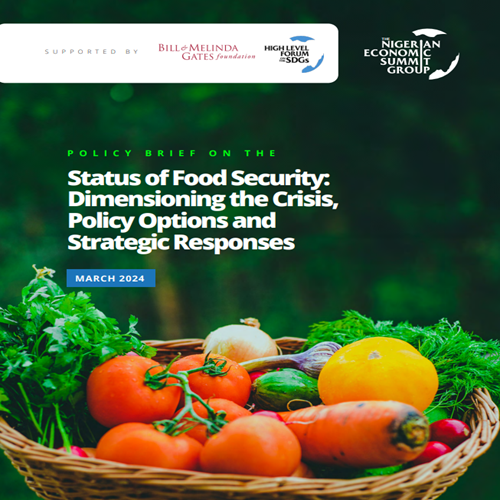How the Policy Innovation Unit is applying behavioural insights to improve social investment programs
Download the Report
of the 29th NES
Download
Now
Posted Mon, Jul 29, 2019 8:21 AM
How the Policy Innovation Unit is applying behavioural insights to improve social investment programs
_1564406492.jpg)
There has been a lot of talk about the importance of social investment programs all over the world, and as a way of alleviating and reducing the poverty gap among Nigerians, the Federal government of Nigeria set up the National Social Investment office (NSIO) who are responsible for implementing the National Social Investment Program (NSIP). In response to the NSIP, the National Policy Innovation Unit (PIU) was set up in 2017 to improve the delivery and uptake of government-led social welfare programs and services through the application of behavioral insights and testing. The Nigerian Policy Innovation Unit is the first public policy institution in sub-Saharan Africa dedicated to the use of behavioural theory, tools and testing to inform social program design.
The Nigerian Economic Summit Group (NESG), Accenture and the Busara Center for Behavioural Economics makeup the structure of the PIU – and the three organisations jointly conducted an impact evaluation on three of the four National Social Innovation Programs (NSIP) between March and April of 2019. The objective of the PIU is to support the NSIO programs by developing, testing and recommending behavioral interventions to solve challenges within the programs.
The fact remains that traditional policy design often rely on the assumption of human rationality and this notion has been found to be outdated. The realisation that creating an effective policy design is much more complex than researchers originally thought, and it has paved the way for an entirely new approach to policy designs. This new approach is behavioural science.
Behavioural science is an analytical approach that uses locally-embedded research to explain the human decision-making process that can help inform improved delivery, uptake and usage of products and services. It employs three phases; behavioral Diagnosis- which identifies the behavioral barriers and levers associated with the programmatic challenges, Intervention Design- Designing interventions based on qualitative research and stakeholder engagements to address the behavioral barriers identified during the diagnostic phase and Testing- Testing the interventions designed and providing scalable recommendations based on the results and analysis.
The behavioural science approach was used in the development and testing of the interventions implemented by the PIU, specifically the PIU researched the various programs under the National Social investment program (NSIP), particularly the Government Enterprise and Empowerment Programme (GEEP), (MarketMoni, TraderMoni and FarmerMoni), National Home-Grown School Feeding (NHGSF), National Conditional Cash Transfer (NCCT) Programme and N-Power; and also came up with a number of interventions and recommendations to help improve the program.
The results of the study showed that the interventions of the PIU had a significant effect on the various programs of the NSIP and that more still needs to be done to ensure the objectives of the program reach more people. However, the results of the impact evaluation of the three programs showed that the recommendations of the NPIU would help to translate into better policy outcomes.
The PIU gave a number of recommendations including the fact that the government needs to build on the successes of PIU Interventions and also leverage behavioural insights to scale the NSIPs – to help provide ‘nudges’ and ‘data-driven impact evaluation.’ It also urged policymakers and Executives to continuously apply scientific interventions to create other impact areas and ensure that a portion of the NSIO budget be earmarked to deliver these interventions.
Furthermore, since Human Capital Development Initiatives require long-term investments and modelling of behavioural patterns, enabling policymakers to better apply resources for economic impact would be highly beneficial. Following Nigeria’s commitment to universal education, the PIU is of the opinion that the program objectives of the NSIP can be met through the effective collaboration of all stakeholders.
Find a blog post
Latest Releases

NESG holds 2024 Annual General M .. Read
2 days ago

Status of Food Security: Dimens .. Read
3 weeks ago

Stakeholder Engagement Towards a .. Read
2 weeks ago
